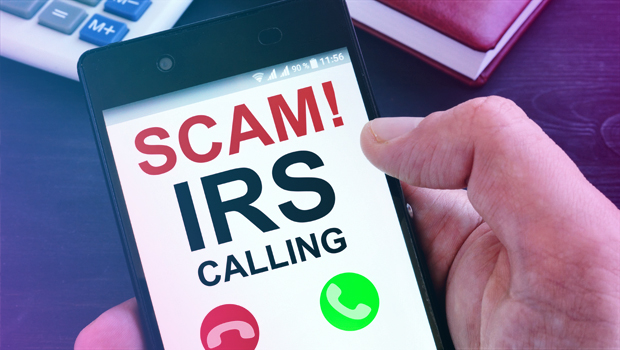With your tax refund check excepted, no news is good news when it comes to the IRS. This means that for the most part, any communication received from the IRS is probably not a good sign. In fact, anytime you hear from the IRS, your heart will probably sink. That’s because you probably fear it’s the start of an audit, a request for back taxes or some sort of notice of an action against you.
But not every communication received from the IRS is bad news. In fact, not every contact purporting to be from the IRS will actually be the IRS. This is especially true when it comes to telephone calls. Even with the popularity of email, social media and the Internet, the telephone still remains a popular avenue for scam artists. Here’s how to tell if that call from the IRS is really the IRS.
Clue #1: The IRS Is Calling You
The IRS rarely communicates by telephone. Most of the time, your interactions with the IRS will be via good ol’ fashioned snail mail correspondence. And if your situation with the IRS were to get to a point where telephone calls were necessary, you would have already received multiple letters beforehand.
Clue #2: Asking for Payment
The IRS is always eager to collect its tax debts, but it will never ask for a taxpayer to make a payment over the telephone. Not only is the caller asking for payment a red flag, but asking for an unconventional payment method (or only accepting a single form of payment) is an even bigger sign of a possible scam. For example, asking that you pay your tax debt with a gift card or in cryptocurrency would be a very strong indicator that someone is trying to con you.
Clue #3: The Telephone Call Is the First Time You’re Learning of the Tax Debt.
If the caller claims that you owe the IRS money that you’re not aware of, there’s a good chance it’s not the IRS you’re speaking to. That’s because the IRS will first notify a taxpayer about a tax debt by mailing them a bill first.
Clue #4: The Caller Threatens You with Arrest or to Call the Police
If the IRS were to call you, they would not threaten you with arrest. Even if they did, there is something called due process that would prevent them from having you arrested merely because you refused to pay off a tax debt over the telephone.
When you ignore this threat, don’t be surprised if you get a spoofed telephone call from a federal, state or local law enforcement agency. This is just the prior caller’s attempt to scare you even more.
Clue #5: Not Having an Opportunity to Appeal the Tax Debt
Whenever the IRS imposes a tax debt on a taxpayer, they will provide the taxpayer with certain due process rights. This means giving the taxpayer an opportunity to fight the tax debt, including its existence and amount. If no such appeal rights have been provided, it’s safe to assume the person calling you isn’t from the IRS.
What You Can Do if Someone Calls You Impersonating an IRS Agent.
After you hang up, write down as much information about the call as you can. This includes when the call took place, the number that showed up on your caller ID and the identifying information provided by the caller, such as their “name,” claimed badge number and where they say they were calling from.
Next, you should report the scam telephone call by providing the proper authorities the information you gathered. You can do this in several ways.
First, you can report the call to the Tax Inspector General for Tax Administration. Second, you can submit a complaint to the Federal Trade Commission’s FTC Complaint Assistant.

